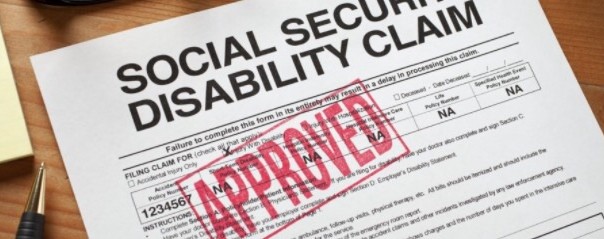 Time to file for Social Security Disability Income?
Time to file for Social Security Disability Income?
Jan Dills Attorney-at-Law, in Charleston, West Virginia, every day, wins cases for disabled West Virginian’s who had been denied social security. Her office also wins cases for vets turned down for VA benefits.
 You can file without a lawyer and win!
You can file without a lawyer and win!
But before you think this is a shoutout to an attorney let me say this: I applied for and won social security disability on my own in four months without being denied, no need for appeal or attorney. Same with my veterans benefits. All on my own and quickly.
How? That’s what I intend to discuss.
Checklist for Success
1. Meet qualifications. I think most get turned down for this reason. If they are disabled they have a hard time demonstrating it and following up with proof. Existing circumstances, public records, medical records and employment records often create doubt to the applicant’s reviewer for a demonstrated need for disability. Appropriate records are often left to the social security or veterans administration to “find” on their own, taking control out of the hands of the applicant. Don’t just assume that SSA will find in what scant records they search, everything they need to prove your case. Applicants being more reactive than proactive, are not helping their argument. Their application lacks:
2. Organization. I fought family, friends and co-workers for years who saw a need for me to apply. But once I decided to do so I fixed a date to apply more than two months out. Why? Research. I went on line to the SSA website where you are encouraged to immediately file. Instead I resisted straying from my schedule and downloaded a tool: a SSA disability checklist.
 (The downloadable PDF is just a suggested checklist, and does not include enough space for all items it lists for you to gather. I recommend you prepare a separate document for each item on the list, being as thorough as possible). I followed this list faithfully using the checklist to gather:
(The downloadable PDF is just a suggested checklist, and does not include enough space for all items it lists for you to gather. I recommend you prepare a separate document for each item on the list, being as thorough as possible). I followed this list faithfully using the checklist to gather:
3. Complete medical records, employment files and compelling proof. Unlike most I am a complete pack rat. I have junk mail filed away from 1969. Does anyone but me have income tax records going back to 1972? Or payroll stubs back to 1979. Using largely my own original records I compiled and documented a ‘relevant’ medical history going back to my first applicable accident. (You can leave out the stomach bugs and other trivialities). I had dates, times, diagnosis, treatments, noted which tests or x-rays were done and had contact data for each doctor and hospital in chronological order going back to 1997. With more recent stuff 2010-2012 I had copies of radiology reviews and even cd’s and dvd’s of x-rays and MRI’s that I had obtained from the individual health providers. I also collected employment records going back twenty years including documented accommodations that employers made to my work environment because of my declining health.
 For the Veteran’s Administration I had all my military records for the VA including copies of post orders placing me in hazardous areas that got me placed on the Agent Orange registry and Camp Lejune residence registry (toxic water consumption).
For the Veteran’s Administration I had all my military records for the VA including copies of post orders placing me in hazardous areas that got me placed on the Agent Orange registry and Camp Lejune residence registry (toxic water consumption).
Accurate, complete and historical chronological evidence is your biggest compelling asset. Gathering these records yourself puts control back in YOUR hands and keeps reviewers from missing something relevant that might not make it into their records.
4. Medical personnel, employers and others who have your health recovery interests in mind. These people all go to bat for you when contacted from the list you provide. They have your health interest in mind and do not have to lie or exaggerate as records going back years exist to reflect their opinions. Call them or send them a letter telling them of your intent to file and ask if they have anything in your files relevant to your application that they could submit. This does two things. Alerts them they will be contacted soon by Social Security on your behalf. And perhaps more importantly, they may have already looked up your files and if they have or have not said anything to you, are only too happy to relay your relevant records to the requestor with a comment of their own that you really need the assist.
5. Fill out a hard-copy application, print out all your medical history, employment history and all documentation and schedule a face-to-face appointment at your local Social Security office. Resist the urge to do this online. I cannot stress this enough. In this fast-paced world of instant gratification: drive-thru meals, texting, and on-line shopping, there is NOTHING more effective than an old-fashioned sit down meeting.
First, they get to SEE you, meet you and note your health and disability with their own eyes.
Second, they will go over everything you have and ask questions of things, perhaps, you did not bring or anticipate.
They may also give you another short list of things that they need. At my meeting the fellow told me in forty years he had never seen anyone with the complete records or history I provided him.
6. Follow up and follow through. If there are other things to gather (your spouse’s marriage certificate, perhaps) don’t put it off, get it all back quickly.
There will be a massive document following that meeting later in the mail. It will ask all kinds of personal questions about your life and your daily routine and more. Be honest (you won’t have to remember any lies if you are truthful) and be as thorough as possible painting an accurate image of how life is for you.
A month after this despite existing MRI’s, x-rays or medical reports, you may be asked to report for a physical (or mental) exam at a place of their choosing. Do not be hostile, do anything and everything they ask graciously to the limits you can. They are doctors, first, and will take note of your health, skeptically if you try to “fake” anything.
Results
Four months and four days after I hobbled into the Social Security office with my application and my paperwork for my first and only sit-down appointment I was notified by mail of my award. It came with a check. My VA approval was quicker than that.
Final thoughts
Aside from the advice I imparted above there is one thing that will almost always improve your chances of a quick positive determination: you must BE disabled.
 I worked many more years than I might have. I was physically handicapped for many years in the workforce because I believed then as I do now: a man must work as long as he can. There comes a time when you will know when your time of productivity is over. Usually the Social Security Administration discovers that too, about the same time you do.
I worked many more years than I might have. I was physically handicapped for many years in the workforce because I believed then as I do now: a man must work as long as he can. There comes a time when you will know when your time of productivity is over. Usually the Social Security Administration discovers that too, about the same time you do.
If, after following my advice, you are turned down by the Social Security Administration, it would be the time to call on a good lawyer to handle your appeal. However, remember, no lawyer, perhaps not even Jan Dills, can win you an award if you are not where your time of productivity is up. Use good judgement and good luck!
